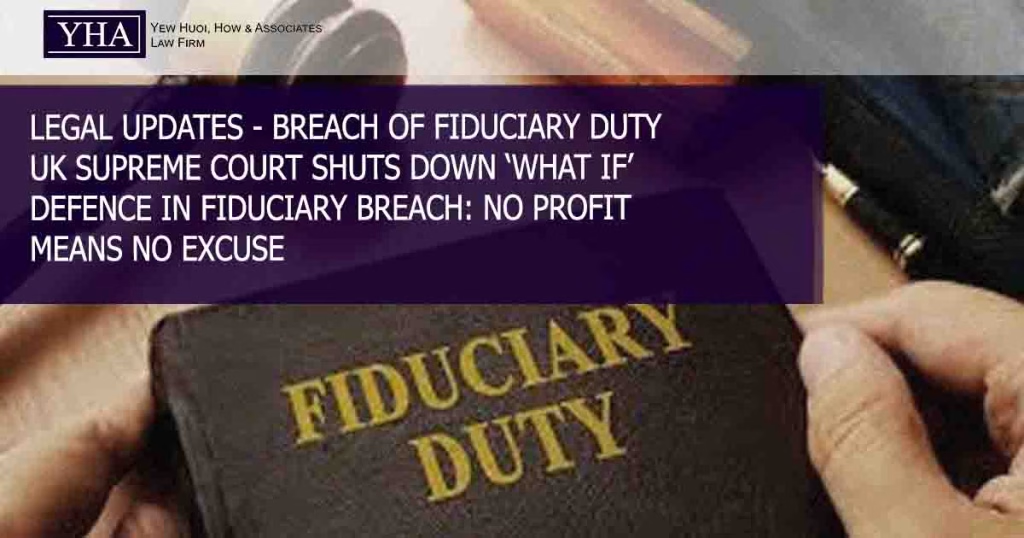1. Summary and Facts
In Rukhadze & Ors v Recovery Partners GP Ltd and Anor [2025] 1 Lloyd’s Rep 329, the appellants were former fiduciaries (directors/partners) of SCPI and Revoker LLP, firms involved in complex international asset recovery services following the death of a Georgian billionaire. After a fallout, the appellants resigned and formed their own entity, Hunnewell, to secure the same contract with the deceased’s family, using confidential knowledge gained during their fiduciary tenure.
The respondents, successors to SCPI, sued for an account of profits, claiming the appellants breached fiduciary duties by exploiting a business opportunity belonging to SCPI and Revoker. The High Court awarded USD 134 million (after a 25% equitable allowance), which was upheld by the Court of Appeal. The appellants appealed to the Supreme Court, arguing that liability should only arise if a “but for” test of causation was satisfied – i.e., the profits would not have been made but for the breach.
2. Legal Issues
• Whether the strict equitable “no profit” rule for fiduciaries should be replaced or qualified by a common law “but for” causation test.
• Whether fiduciaries can escape liability by arguing they would have made the profit even without breaching their duties.
• The correct interpretation and scope of the fiduciary duty to account for profits, and the relevance of counterfactual scenarios (e.g., whether informed consent would have been given).
3. Court’s Findings
• The UK Supreme Court dismissed the appeal and reaffirmed the strict application of the fiduciary profit rule.
• The duty to account for profits is a standalone equitable duty, not just a remedy for another breach. It arises once profits are made from or through the fiduciary position, even without dishonest intent.

